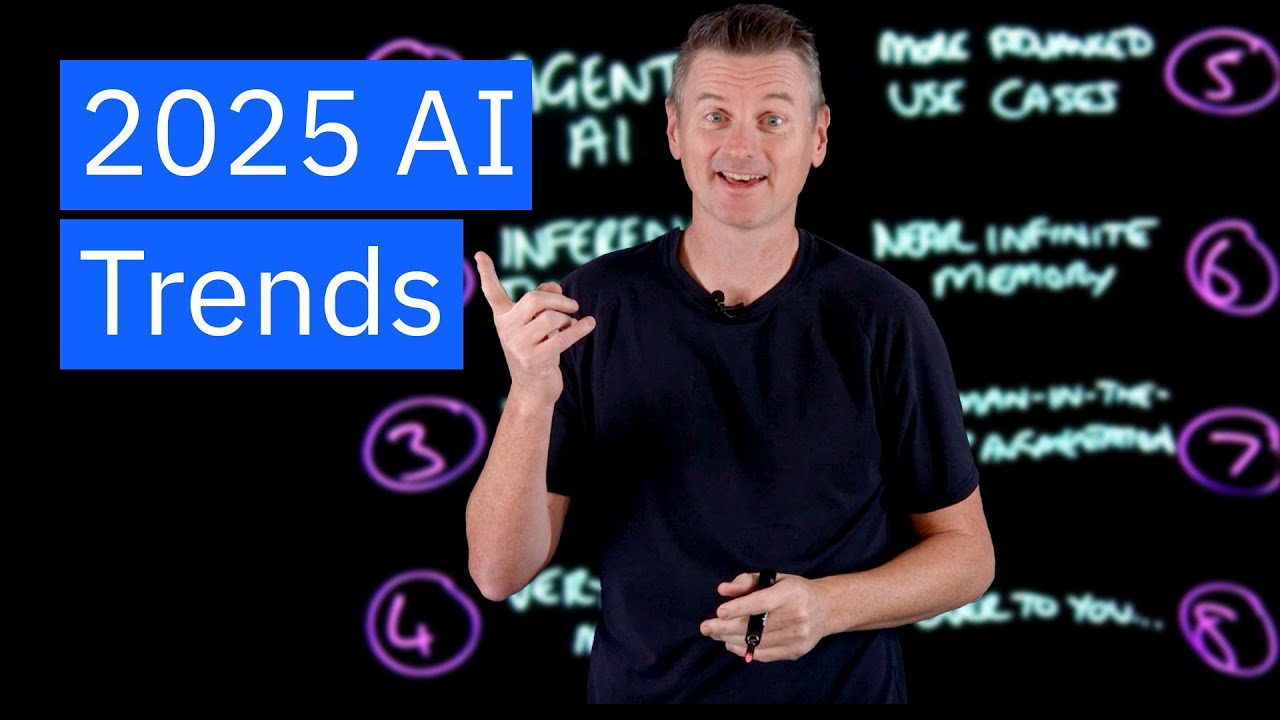The video outlines eight anticipated AI trends for 2025, including the rise of agentic AI capable of complex reasoning, the development of very large and very small models, and advancements in enterprise applications. It emphasizes the importance of improved inference processing, personalized interactions through near-infinite memory, and the integration of AI tools into professional workflows to enhance human capabilities.
In the video, the speaker discusses eight anticipated AI trends for 2025, starting with the rise of agentic AI. These intelligent systems are designed to reason, plan, and take action, allowing them to tackle complex problems through multi-step plans. However, current models struggle with consistent logical reasoning, particularly in intricate scenarios with multiple variables. The speaker emphasizes the need for improved models to enhance the performance of AI agents in the coming years.
The second trend highlighted is inference time compute, which refers to the processing that occurs when an AI model analyzes real-time data. New models are being developed to extend inference processing, allowing them to spend variable amounts of time reasoning before providing answers. This approach enables improvements in reasoning without altering the underlying model, suggesting a dual focus on enhancing both training and inference processes to create smarter AI agents.
The video also discusses the emergence of very large models, with expectations for models to reach sizes of up to 50 trillion parameters by 2025. Conversely, there is also a trend towards very small models, which can operate efficiently on personal devices without requiring extensive computational resources. These smaller models, despite having only a few billion parameters, are expected to be tailored for specific tasks, making AI more accessible and practical for everyday use.
As AI continues to evolve, the speaker notes that enterprise use cases will become more advanced, moving beyond basic applications to include sophisticated customer service bots and proactive IT network optimization tools. Additionally, the concept of near-infinite memory is introduced, where AI systems will be able to retain extensive knowledge about individual users, enhancing personalized interactions and customer service experiences.
Finally, the video touches on the importance of human-in-the-loop augmentation, highlighting a study where a chatbot outperformed physicians in clinical reasoning. The speaker points out the need for better integration of AI tools into professional workflows, allowing experts to leverage AI without requiring extensive knowledge of its operation. The video concludes by inviting viewers to share their thoughts on what they believe will be significant AI trends in 2025, fostering audience engagement and participation.
